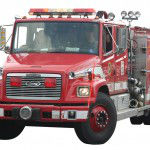 Earlier this week, we told you about Wilson v. City of Jersey City, in which the Appellate Division (on remand from the Supreme Court) held that the conduct of Jersey City’s 9-1-1 operators was not “wanton and willful” and thus they were entitled to immunity pursuant Title 52, N.J.S.A. 52:17C-10. Nestled in a footnote within the opinion is a holding that essentially eliminates all vicarious liability claims against public entities for their 9-1-1 operations.
Earlier this week, we told you about Wilson v. City of Jersey City, in which the Appellate Division (on remand from the Supreme Court) held that the conduct of Jersey City’s 9-1-1 operators was not “wanton and willful” and thus they were entitled to immunity pursuant Title 52, N.J.S.A. 52:17C-10. Nestled in a footnote within the opinion is a holding that essentially eliminates all vicarious liability claims against public entities for their 9-1-1 operations.
The Supreme Court previously held in Wilson that Title 52 provides immunity to 9-1-1 operators unless their conduct amounts to a “wanton and willful disregard for public safety.” In the Wilson remand, the Appellate Division then held that because Title 59 (the Tort Claims Act) shields public entities from liability for the “willful misconduct” of its employees, a public entity cannot be held vicariously liable for the “wanton and willful” conduct that falls outside of Title 52’s immunity.
In other words, if an employee was merely negligent performing 9-1-1 related duties, Title 52 immunizes both the employee and the public entity. However, if the employee acts with a “wanton and willful disregard for public safety,” then Title 59 will immunize the public entity where Title 52 does not.
Thus, the only method by which a plaintiff can hold a public entity liable for 9-1-1 mishaps is through a direct claim that alleges the public entity itself acted in a willful and wanton manner. After Wilson, it is hard to imagine vicarious liability where proper procedures and policies are in place.
Going forward, public entities should consult a knowledgeable New Jersey lawyer to ensure that their hiring procedures, training manuals, and operational policies and procedures, training manuals are in line with current administrative rules and regulations.
